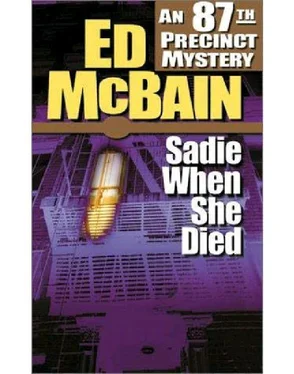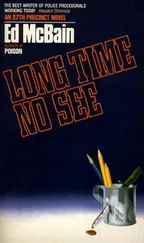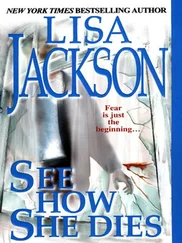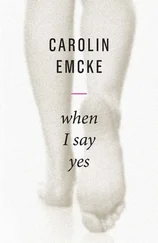Ed McBain - Sadie When She Died
Здесь есть возможность читать онлайн «Ed McBain - Sadie When She Died» весь текст электронной книги совершенно бесплатно (целиком полную версию без сокращений). В некоторых случаях можно слушать аудио, скачать через торрент в формате fb2 и присутствует краткое содержание. Жанр: Полицейский детектив, на английском языке. Описание произведения, (предисловие) а так же отзывы посетителей доступны на портале библиотеки ЛибКат.
- Название:Sadie When She Died
- Автор:
- Жанр:
- Год:неизвестен
- ISBN:нет данных
- Рейтинг книги:4 / 5. Голосов: 1
-
Избранное:Добавить в избранное
- Отзывы:
-
Ваша оценка:
- 80
- 1
- 2
- 3
- 4
- 5
Sadie When She Died: краткое содержание, описание и аннотация
Предлагаем к чтению аннотацию, описание, краткое содержание или предисловие (зависит от того, что написал сам автор книги «Sadie When She Died»). Если вы не нашли необходимую информацию о книге — напишите в комментариях, мы постараемся отыскать её.
Sadie When She Died — читать онлайн бесплатно полную книгу (весь текст) целиком
Ниже представлен текст книги, разбитый по страницам. Система сохранения места последней прочитанной страницы, позволяет с удобством читать онлайн бесплатно книгу «Sadie When She Died», без необходимости каждый раз заново искать на чём Вы остановились. Поставьте закладку, и сможете в любой момент перейти на страницу, на которой закончили чтение.
Интервал:
Закладка:
“He sounds like a stalwart,” Kling said, grinning.
Carella had found an address for Michael Thornton, the second name on Sarah’s list. It, too, was identical to the one in her book.
“Oh, he was a stalwart, no question,” Meyer said. “And conscientious as the day was long. Did I mention it was a bitter cold day?”
“Yes, I believe you did,” Kling said.
“Nonetheless,” Meyer said, “it was the habit of a very pretty and well-built Bethtown lady to take a swim every day of the year, rain or shine, snow, hail, or sleet. Did I mention she had very big boobs?”
“I believe you did.”
Carella kept turning pages in the directory, checking names and addresses.
“The lady’s house was right on the beach, and it was her habit to bathe stark naked because this was a very isolated part of Bethtown, way over near the end of the island. This was before they put the new bridge in, you still had to take a ferry to get out there. It so happened, however, that the lady’s house was also on the conscientious cop’s beat. And on this particularly bitter day some three or four winters ago, the lady rushed out of her back door with her arms crossed just below her big bulging boobs, hugging herself because it was so cold, and the conscientious cop . . .”
“Yes, yes, what about him?” Kling said.
“The conscientious cop took one look at that lady hugging herself as she ran down toward the water, and he yelled, ‘Stop, police!’ and when the lady stopped, and faced him, still clutching herself under those big boobs, she indignantly asked, ‘What have I done, officer? What crime have I committed?’ And the conscientious cop said, ‘It ain’t what you done , lady, it’s what you were about to do. You think I’m going to stand by while you drown those two chubby pink-nosed puppies?’”
Kling burst out laughing. Meyer slapped the top of his desk and roared at his own joke. Carella said, “Will you guys please shut up?”
He had verified all five addresses.
In the morning, he would get to work.
The letter was the sixth one April Carella had written to Santa Claus. In the kitchen of the Riverhead house, she read it silently over her mother’s shoulder:
“What do you think, Mom?” she said.
She was standing behind her mother’s chair, and Teddy could not see her lips, and had no idea that she had spoken. Teddy was a deaf mute, a beautiful woman with midnight hair and dark luminous brown eyes that cherished words because to her they were visible and tangible; she saw them forming as they tumbled from fingers; she touched them in the dark on her husband’s lips, and heard them more profoundly than she would have with normal “hearing.” She was thoroughly absorbed by the inconsistencies in her daughter’s letter, and did not look up as April came around the chair. Why someone should be able to spell a word like “personally” while making a shambles of simple words like “busy” or “would” was beyond Teddy’s comprehension. Perhaps she should visit April’s teacher, mildly suggest to her that whereas the child possessed undeniable writing ability, wouldn’t her style be more effective if her imaginative spelling were controlled somewhat? Some of the avant-garde quality might be lost, true . . .
April touched her arm.
Teddy looked up into her daughter’s face. The two, in the light of the Tiffany lamp that overhung the old oak table in the large kitchen, were something less than mirror images, but the resemblance, even for mother and daughter, was uncanny nonetheless. More remarkable, however, was the identical intensity of their expressions. As April repeated her question, Teddy studied her lips, and then raised her hands and slowly spelled out her answer, while April’s gaze never faltered. It occurred to Teddy, with some amusement, that a child who could not spell “would” might have difficulty deciphering the letters and words that Teddy deftly and fluidly formed with her fingers, especially when the message she was communicating was “Your spelling is bad.” But April watched, nodding as she caught letters, smiling as the letters combined to form a word, and then another word, and finally grasping the short sentence, and saying, “Which ones are spelled wrong, Mom? Show me?”
They were going over the letter again when April heard a key in the front door. Her eyes met briefly with her mother’s. A smile cracked instantly across her face. Together, they rose instantly from the table. Mark, April’s twin brother, was already bounding down the steps from his bedroom upstairs.
Carella was home.
7
A t a little past eight the next morning, on the assumption that most men worked for a living and would be in transit to their jobs after that hour, Carella called Andrew Hart at the number listed in Sarah’s address book. The phone was picked up on the fifth ring.
“Hello?” a man’s voice said.
“Mr. Hart?”
“Speaking.”
“This is Detective Carella of the 87th Squad. I wonder . . .”
“What’s the matter?” Hart said immediately.
“I’d like to ask you some questions, Mr. Hart.”
“I’m in the middle of shaving,” Hart said. “I’ve got to leave for the office in a little while. What’s this about?”
“We’re investigating a homicide, Mr. Hart . . .”
“A what ? A homicide?”
“Yes, sir.”
“Who? Who’s been killed?”
“A woman named Sarah Fletcher.”
“I don’t know anyone named Sarah Fletcher,” Hart said.
“She seems to have known you, Mr. Hart.”
“Sarah who ? Fletcher, did you say?”
“That’s right.”
“I don’t know anybody by that name. Who says she knew me? I never heard of her in my life.”
“Your name’s in her address book.”
“My what? My name? That’s impossible.”
“Mr. Hart, I have her book right here in my hand, and your name is in it, together with your address and your phone number.”
“Well, I don’t know how it got there.”
“Neither do I. That’s why I’d like to talk to you.”
“Okay, okay,” Hart said. “What time is it? Jesus, is it ten after eight already?”
“Yes, it is.”
“Look, I’ve got to shave and get out of here. Can you come to the office later? About . . . ten o’clock? I should be free around then. I’d see you earlier, but someone’s coming in at nine.”
“We’ll be there at ten. Where is the office, Mr. Hart?”
“On Hamilton and Reed. 480 Reed. The sixth floor. Hart and Widderman. We’ve got the whole floor.”
“See you at ten, Mr. Hart.”
“Right,” Hart said, and hung up.
Like a woman in her tenth month, the clouds over the city twisted and roiled in angry discomfort but refused to deliver the promised snow. The citizens grew anxious. Hurrying to their jobs, dashing into subway kiosks, boarding buses, climbing into taxicabs, they glanced apprehensively at the bloated skies and wondered if the weather bureau, as usual, was wrong. To the average city dweller, being alerted to a snowstorm was like being alerted to the bubonic plague. Nobody in his right mind liked snow. Nobody liked putting on rubbers and galoshes and skid-chains and boots; nobody liked shoveling sidewalks and canceling dinner dates and missing theater parties; nobody liked slipping and sliding and falling on his ass. But worse than that, nobody liked being promised all that, and being forced to anticipate all that, and then not having all that delivered. The city dweller, for all his sophistication, was a creature of habit who dreaded any break in his normal routine. He would accept blackouts or garbage strikes or muggings in the park because these were not breaks in the routine, they were the routine. And besides, they reinforced the image he carried of himself as an urban twentieth-century swashbuckler capable of coping with the worst disasters. But threaten a taxicab strike and then postpone or cancel it? Promise a protest and have it dispersed by the police? Forecast snow and then have the storm hover indefinitely over the city like a writhing gray snake ready to strike? Oh no, you couldn’t fool with a city person that way. It made him edgy and uncomfortable and insecure and constipated.
Читать дальшеИнтервал:
Закладка:
Похожие книги на «Sadie When She Died»
Представляем Вашему вниманию похожие книги на «Sadie When She Died» списком для выбора. Мы отобрали схожую по названию и смыслу литературу в надежде предоставить читателям больше вариантов отыскать новые, интересные, ещё непрочитанные произведения.
Обсуждение, отзывы о книге «Sadie When She Died» и просто собственные мнения читателей. Оставьте ваши комментарии, напишите, что Вы думаете о произведении, его смысле или главных героях. Укажите что конкретно понравилось, а что нет, и почему Вы так считаете.












